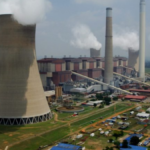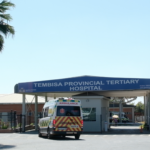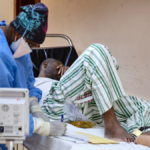- Six influential health experts questioned the ANC, DA, EFF and independent candidate Zackie Achmat on how they plan to fix South Africa’s health system in Bhekisisa’s elections webinar on Tuesday.
- Governments have the power to make decisions that can mean the difference between life and death when it comes to health matters, which is why the health policies of the party you plan to vote for on 29 May, matters.
- Our experts peppered politicians about their plans to deal with corruption in the health sector, how they will get more people with HIV on treatment, how they will solve child hunger and gender-based violence, and how they plan to address the health consequences of the climate crisis. Here’s a summary of what was said.
From corruption in the health sector to gender-based violence and the devastating health consequences of the climate crisis, the party you plan to vote for on 29 May, should have plans to address these health issues.
Why? Because the government you vote into power will have the authority to make decisions on health matters that can mean the difference between life and death.
On Tuesday, six influential health experts questioned the ANC, DA, EFF and independent candidate Zackie Achmat on how they plan to fix South Africa’s health system in Bhekisisa’s elections webinar.
You can watch the full webinar here or use our elections tool to find out what 15 parties say about health issues in their manifestos.
Here’s a summary of what went down in our webinar.

1. Issue: Corruption in the health system
Alex van den Heever, the chair of social security systems, administration and management studies at the Wits School of Governance, asked the EFF and DA:
What will your party change to root out corruption in the health system and provide high-quality service?
Tlaleng Mofokeng for the EFF said:
The profiteering [by] private companies will not come before South Africans’ right to health. Relying on tenders for buying public goods and services will immediately be stopped, because collusion that leads to price hikes is what feeds corruption. Good management and stewardship to run healthcare facilities are important. [Mofokeng didn’t say what system the EFF would implement to replace tenders. Use our elections tool to find out more about the EFF’s policies.]
Michéle Clarke for the DA said:
The party will move healthcare provision away from politicians’ hands to qualified health administrators, so that services will be available to everyone regardless of income. Setting up infrastructure, appointing personnel and providing services will be done independently, without government control.
Van den Heever responded:
Doing away with competitive bidding won’t solve the problem of corruption in buying goods and services; in fact, it may deepen it. “We’ve got a long way to go to fix the structural issues that prevent collusion and corruption in procurement,” he says.
2a. Issue: HIV
Anele Yawa, general secretary of the Treatment Action Campaign, asked the ANC:
“HIV has taught us the public healthcare system can work when it’s managed well. Will the ANC get all politicians to use the public system to speed up change?”
Confidence Moloko for the ANC said:
The National Health Insurance scheme will clear the divide between the private and public health sector. There will be no difference between the two systems once the NHI is rolled out. Politicians, like everyone, will be able to benefit from a transformed system.
Yawa responded:
Government officials use private healthcare, yet they’re the ones making rules and laws about healthcare for government patients. There’s no “better life for all” if people who are poor have to spend a lot of money to get good healthcare.
Yawa asked the independent candidate, Zackie Achmat, what he’ll do about getting the 2-million people in South Africa with HIV who are not on treatment yet into the system. [7.8-million people in South Africa are infected with the virus.]
2b. Issue: HIV
Zackie Achmat said:
We need to deal with stigma, including self-stigmatisation. It’s crucial to have visibility on the ground, especially to have men come forward. He added that there are two epidemics coming on the back of HIV — obesity and diabetes. To deal with that, food labelling needs to change and people must have affordable access to medicines like semaglutide, which is used to treat both diabetes and obesity.
Yawa responded:
Ordinary people are denied the services they need because politicians are “looting the public purse”. We need leaders in Parliament who know what the mandate of the people is, and they should join activists “on the streets” when they’re advocating for access to [medicines] for all people with HIV.
3. Issue: Malnutrition
Rahima Essop, communications director of the DG Murray Trust asked the DA and independent candidate Zackie Achmat:
“How will politicians deal with fixing child malnutrition, seeing that a quarter of children under five don’t grow like they should because they don’t have enough healthy food?”
Michéle Clarke for the DA said:
Adequate social grants have to be in place. The child support grant must increase to the food poverty line of R760, be available to pregnant mothers from the start and it must be made easier to apply for these grants. More foods must be exempted from value-added tax, including protein-rich foods like tinned fish, bone-in chicken, peanut butter and baby food.
Zackie Achmat said:
Family and societal hunger must become a thing of the past. But it will take time — and politicians shouldn’t make promises they can’t keep. To end child malnutrition, there must be a universal income grant so that people will have enough money to buy healthy food and pregnant women need to get the best care possible. Enough, healthy food must be available at early childhood development centres, because “hunger stalks those”.
Essop responded:
About 2.5-million children don’t have access to the child support grant. Therefore, to make sure everyone can get healthy food, at least 10 essential food items need to be made cheaper.
4. Issue: Gender-based violence (GBV)
Yvette Raphael, executive director of Advocates for the Prevention of HIV in Africa, asked the ANC and EFF:
“When it comes to GBV, South Africa is a crime scene. No place is safe for women. Thuthuzela Centres are closing down. Why should women vote for your party?”
Confidence Moloko for the ANC said:
The party will implement the National Strategic Plan on Gender-Based Violence and Femicide to root out violence against women and children. It will expand support services like Thuthuzela Centres and GBV desks in police stations and promote gender equality and empowerment for women and girls.
Tlaleng Mofokeng for the EFF said:
Violence doesn’t develop in a vacuum; it builds against a background of inequality and discrimination. GBV is not a private matter and shouldn’t be left to families to deal with themselves. An EFF government will make sure that forensic backlogs, especially for rape cases, are cleared and that there are enough resources and expertise to deal with cases promptly. GBV will be treated as a serious crime and the EFF will make sure that perpetrators are jailed.
Raphael responded:
South Africa’s women will not vote for a party who has made promises that are not kept. “This country needs to be made safe — for women, for children, for everyone.”
5. Issue: Universal access to healthcare
Mvuyisi Mzukwa, chairperson of the South African Medical Association, pointed out that the association is worried about the National Health Insurance Bill in its current form. He asked the DA:
“How will the DA make sure that there’s healthcare for all?”
Michéle Clarke for the DA said:
The party is committed to universal healthcare for everyone and will use the “strength of the private sector and partnerships with the public sector” to ensure quality care. It will lower healthcare costs, guarantee a minimum package of health services and set up an independent watchdog to curb corruption. The party will make sure that there are enough medicines and stocks, and enough health workers to serve everyone.
Mzukwa asked the ANC:
“Why is the ANC pushing for an unworkable system at the expense of the health and welfare of the citizens?”
Confidence Moloko for the ANC said:
The NHI Act will provide a legal framework to create a single health system for all. The NHI is a financing mechanism to give everyone equal access to healthcare — black and white, rich and poor. It will prevent things from staying just the same as it’s been until now.
Yvette Raphael, as a user of both private and public healthcare, responded on behalf of Mzukwa (who had online connection challenges):
The NHI in the hands of the ANC is a scam. Politicians must not lie to citizens to make them think that everyone will have access to any clinic or hospital. I would love for everyone to have access to healthcare.
6. Issue: The impact of climate change on health
Sekoetlane Phamodi, programme director at the New Economy Hub, asked the EFF and independent candidate Zackie Achmat:
“What is the plan to lessen the human-made causes of climate change and improve health outcomes for people as we go deeper into this crisis?”
Tlaleng Mofokeng for the EFF said:
Environmental degradation at the hands of greedy business and extractive capitalism led to air, land and water pollution. Under apartheid, Black people were segregated to those areas. The EFF is clear on the issue of [getting land back] as a form of justice for Black people. It’s important to talk about the physical and mental health impacts of climate change, but environmental impacts also need to be addressed. The EFF will restore the land and respect the land.
Zackie Achmat said:
The question we have to ask is how we can ensure that everyone’s health becomes a priority in the climate crisis. The first thing to do is to make sure that [people in informal settlements and] working class households will get access to solar power, and that every government building must run on solar power. In addition, health workers should be trained to treat patients in conditions brought on by the climate crisis, such as floods and [wild]fires.
Phamodi responded:
The health impacts of fossil fuels are already evident. The public health response to the climate crisis has to start with ending the reliance on coal.




